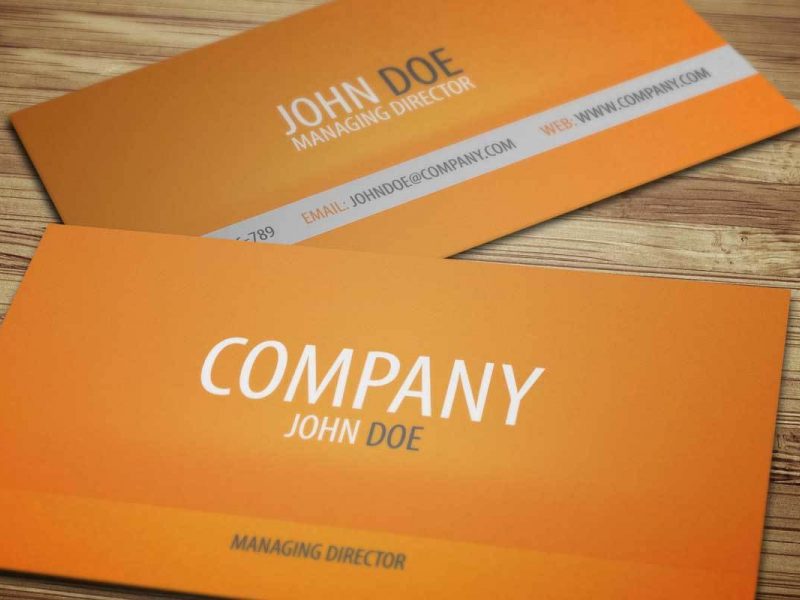My Resumè is my Business Card for the labour market
 CV: the business card for the labour market
CV: the business card for the labour market What is a curriculum vitae (abbreviated as “CV”) used for?
A cv (or resumè) is used to introduce yourself to a company – and generally to a potential employer – with which an interest of a professional nature has developed.
It is the first step towards the creation of this relationship and precedes other steps like a phone call, a first interview, a selection process (which varies from company to company, position to position and country to country).
This is the context in which we discuss that which should be written or not be written in a cv.
Incidentally, we are considering the situation in which the cv is written with a free text.
It might sound easy … but in practice it’s not when you’re starting from a blank page.
What should I write at the top of the page?
Should I write Curriculum vitae or not?
You can write “Curriculum Vitae” if you send your cv without a covering / presentation or marketing letter or email, otherwise it’s best to omit the wording: the reference to the “attached cv” or similar can be put in the letter.
The wording “Curriculum vitae” can be added at the foot of the page.
You certainly have to give your name. It’s better to put your name before your surname. This rule also applies for the signature – it’s actually even more important in this case. Even in Italy people no longer introduce themselves – verbally or in writing – by giving their surname before their name!
Since the context is that of an individual offering their services to a company for an employment relationship, it’s best not to use titles (academic qualifications are shown in another section). Starting with Dr., Eng., etc. is not elegant. In this case we’re not presenting ourselves as freelance professionals, where it is actually appropriate to specify professional titles!
What contact details should be added?
Firstly you need to add your own contact details! If the reader wants to call you (which is, after all, the reason the cv is being sent!) it’s best if they can easily see your contact details without having to look for them on the last page or goodness knows where (like in the covering letter). And what if you forget to add them? You’ll have done the work for nothing!
The contact details are: address, telephone, email. These three things are now standard.
In Italy they want to know your address. This is still a country in which importance is given to dialects and the province you come from for various reasons. A “business” reason for looking at where a person lives is that in Italy people who relocate for work related reasons can still claim some of their expenses from the company in question (e.g. reimbursement of travel expenses or the cost of a hotel/residence). Companies that have no intention of paying for these things might rule out candidates coming from other cities, regions, etc.. Companies may only budget for relocation expenses if the role they are looking for is difficult to fill from within the local area. It might be worthwhile providing your official residence and domicile if you are able to/want to exploit the fact of naming two cities or regions.
Nowadays a telephone is your mobile – who still uses a landline or checks their answering machine at home? It’s best to give a mobile number that is always working and which has voicemail. Some people don’t like voicemails. I don’t want to go into styles and tastes, but in order to be easily reachable it’s best to have voicemail, keep your phone on, listen to your messages and … call back people who leave you a message as soon as you can.
When you offer your services to a company it is a personal action so it’s best to give your personal mobile number and email address. This makes sense in both the short and medium-long term: if you change company people might not be able to find you any more. Or, if you are sacked, a new prospective employer could find out about this immediately and you wouldn’t be able to manage the “reason for your departure” by giving your version of the facts.
What about a photo? It depends. If you really want to have a photo it has to show your face, be in colour and MUST be recent: photos of you as a youngster if you are over 50 won’t do you any favours!
In Italy photos are not used very frequently. In other countries they might ask for them (e.g. Germany), in others still they might be completely inappropriate (e.g. in the US they are forbidden since photos reveal your gender, race, age, etc. which could result in discrimination).
There are professions in which photos could be appropriate: as is the case of professions where there is contact with the general public, with clients, etc. or to divert the attention away from vital statistics! You might look younger than you are and in Italy there are still prejudices surrounding age!
Is there anything else that should be put at the start?
It depends: some people might add a reference to a professional social network (e.g. Linkedin), or a Skype account for telephone conversations (nowadays certain initial steps involve use of the internet, especially if it’s an international selection process).
Don't give your date of birth …. This could create prejudices, so it’s best not to highlight it. Let’s focus on what we can do and not on what age we are.
